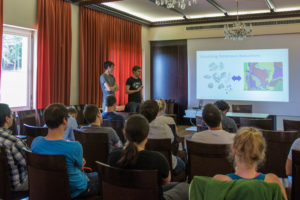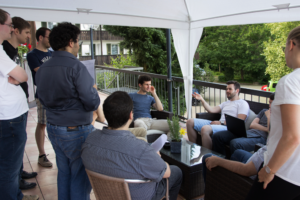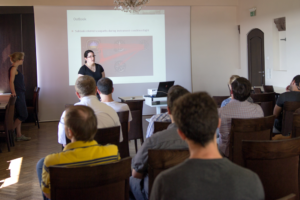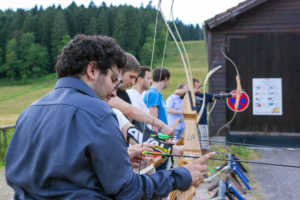The doctoral retreat 2016 was held at the Waldhotel Zollernblick from 18th to 20th of July. We, the PhD students from SFB-TRR 161, would like to thank everybody who made it possible to discuss our research and collaboration in a relaxed atmosphere.
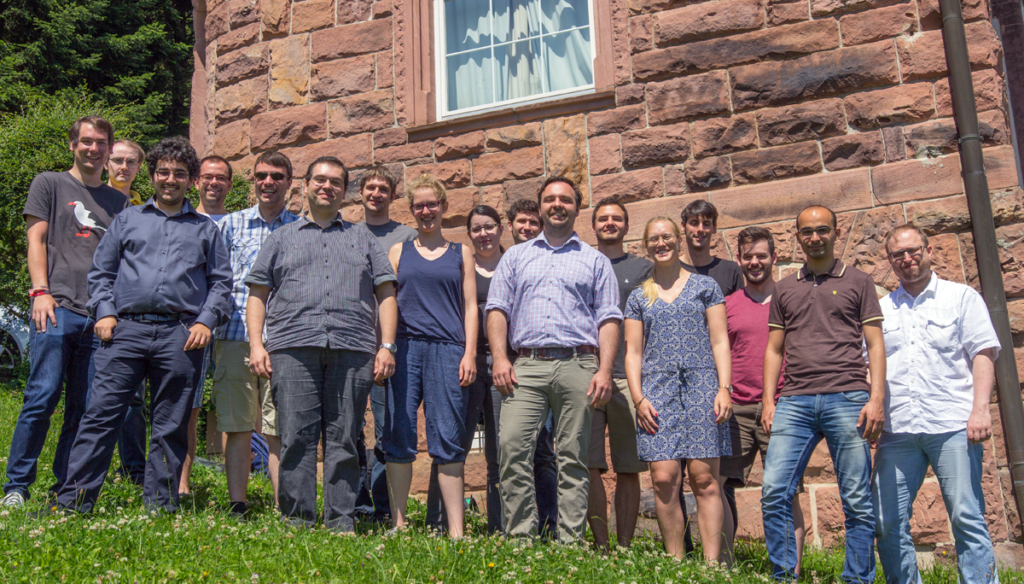
This was the first doctoral retreat for the SFB-TRR 161, and thus the first chance to meet each other for many PhD students, especially for those who were not at the previous status seminar. During the first two days everybody held a short talk to kick-start discussions – not just about what has been done, but also about what could be done in the future. Many things have happened since the last status seminar: some projects have new faces, many papers have been published, and a lot of work has happened across the task forces.
The informal atmosphere helped with the integration of new students into the group and to find out who has what kind of data and associated problems. Some projects got a nice head-start at the retreat because it was really easy to pick up some knowledge and competence from other PhD students beyond planned collaboration, especially during team building activities. We believe this would be much more difficult to pull off via E-Mail or at a status seminar. The first activity was at a mobile archery range with hunting bows and artificial animals. Archery allowed us to talk to each other, while also being fun and a bit competitive. The second activity was at the Experimenta Freudenstadt with lots of physically and perceptually motivated experiments refined for broader audience – an interesting and inspiring excursion.
On the last day we discussed how to strengthen collaboration and task forces. Direct collaboration between projects seems to work rather well, because of synergies in terms of co-authorship and verifiable project goals. This is a bit different with Task Forces, i.e. they are designed to facilitate collaboration for meta-goals like quality models, generative data models, and user-oriented testing methodologies. There was a lively experience exchange about the summer school and writing papers with many co-authors like done for BELIV.
We hope future doctoral retreats to be as fruitful as this one.

